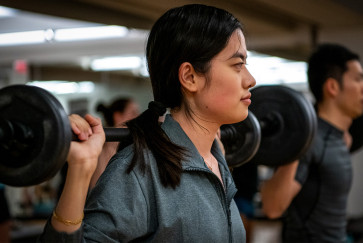President Morton Schapiro called on people of diverse faiths at Northwestern’s 162nd annual Baccalaureate Service to act without delay to confront “systemic racism and specifically, anti-blackness,” and he challenged the faithful to fight that injustice.
Describing the Jewish principle of “Tikkun Olam,” which translates as “repairing the world,” the president spoke during the 2020 interfaith service on June 18 of how that goal “begins with each of us. My faith implores me to never stop reflecting, listening and learning, to use my own racial and economic privilege to help repair what is clearly a broken and unjust world for so many.
“There is no more important goal than that one,” he added. “And as one commentator recently put it, ‘Tikkun Olam unequivocally means that black lives matter.’ We can’t leave the hard work for others or be paralyzed by the daunting task ahead.”
President Schapiro spoke during a special Baccalaureate service conducted virtually this year due to COVID-19 -- kicking off Commencement ceremonies for graduating seniors, their parents and guests. The annual interfaith celebration of diversity was focused, as always, on honoring people from all religions in the Northwestern community.
Hosted by the president and the University chaplain, the 2020 Baccalaureate service was pre-recorded, and the ceremony was posted on the University’s Commencement website for students, their families and other University community members to attend remotely.
The online service began with a solo cello performance by graduating senior Roey Dushi, playing J. S. Bach’s Cello Suite #3. Next came video of students separately sounding a Tibetan singing bowl, a Muslim call to prayer, Christian chimes and the Jewish shofar.
The service included remarks by leaders of different faiths in the Northwestern community, student reflections and a variety of musical performances, including a moving rendition of the University’s alma mater performed by the Alice Millar Chapel Choir, conducted by Stephen Alltop.
As every year, spiritual leaders from different backgrounds came together, this time remotely, to celebrate the graduating seniors and offer words of reflection, inspiration and compassion, representing and embracing the many faith traditions found at the University, such as Islam, Buddhism, Hinduism, Christianity, Judaism, Sikhism and Baha'i.
“Year after year we celebrate in one space many of the world’s great religions,” President Schapiro said. “The music, the chanting, the talks renew and inspire me. Here, religion brings us together, instead of, as is sometimes the case, pulling us apart.”
“And this year, at this moment, Baccalaureate has a particular urgency,” he added. “We are all grappling with fundamental truths about a world marked by heinous acts and policies inflicted upon and directed at black, brown, indigenous and other people of color in the United States and beyond.
“While those of us here may see religion as a beacon of hope, we need to come to grips with an unfortunate truth: Systemic racism and specifically, anti-blackness has at times been perpetuated in the name of religion or, at the very least, with a blind eye of religious and other leaders,” the president said.
“I include myself as one of those leaders. And I ask myself: ‘Did I fail to really ask the right questions or did I fail to truly listen to the answers?’ Whether my errors were ones of commission or of omission doesn’t really matter,” he said.
“At the start of Yom Kippur, the most sacred and powerful day for Jews worldwide, we acknowledge our failures,” the president noted. “I always consider both my personal and my professional limitations. But this year, I will think longer and harder than ever about how I could be better and how I could do better.”
At the service, students from Christian, Jewish and Muslim backgrounds spoke about how their faith journeys intersected with their time at the University and helped them cope, grow and thrive at Northwestern.
One of them, Nida Pervez discussed her Northwestern experience through the lens of her Muslim faith. “It’s hard to image my Northwestern experience without Islam, because Islam has always been rooted in every decision I make and every action I take,” she said. Her faith helped her find the Muslim Cultural Students Association, which she described as a community where she found love and her biggest support throughout her college experience.
“I have always found that having a bond with people based on one piece of shared identity to be extremely empowering,” Pervez said, and because of that example, she is confident she will continue to find community that will support her later in life as she moves on after graduating.
“Islam has also helped me deal with my successes and failures with grace. College is hard for many reasons,” she added. “I have always looked to my religion to help navigate both of these situations. … No human is perfect. but Islam has taught me that there is a lot to offer in the pursuit of greatness.” Not only did it help give her the tools to help her grow, but she declared, “Northwestern is where I found my pride at being Muslim. Despite what the media portrays and despite what people say, I know my religion, and I couldn’t imagine my Northwestern career without it.”
President Schapiro ended his remarks by observing, “Religion, I believe, can lead us to a promised land, a land where all of us will be afforded the rights and the dignities that we deserve.
“I conclude with my hope for each of you: students, your families, friends, faculty and staff,” he said. “May you care more and more about those around you and try your very best to create a world where everyone is safe, respected and provided every single possible opportunity to thrive.
“May your respect for people of all faiths grow, and may your love of your own faith become even stronger, guiding you to a life imbued with an ever-growing sense of humility, of service and of justice,” President Schapiro urged the audience. “Congratulations to our graduates and their families and friends.”

